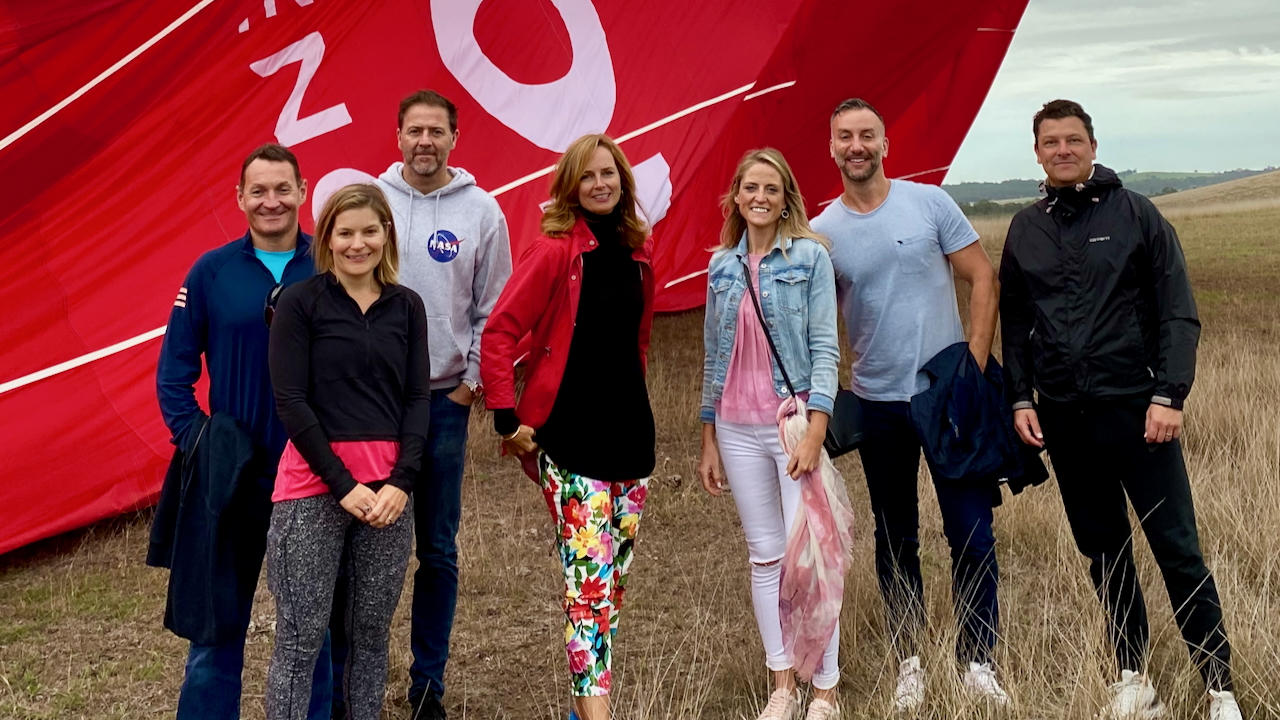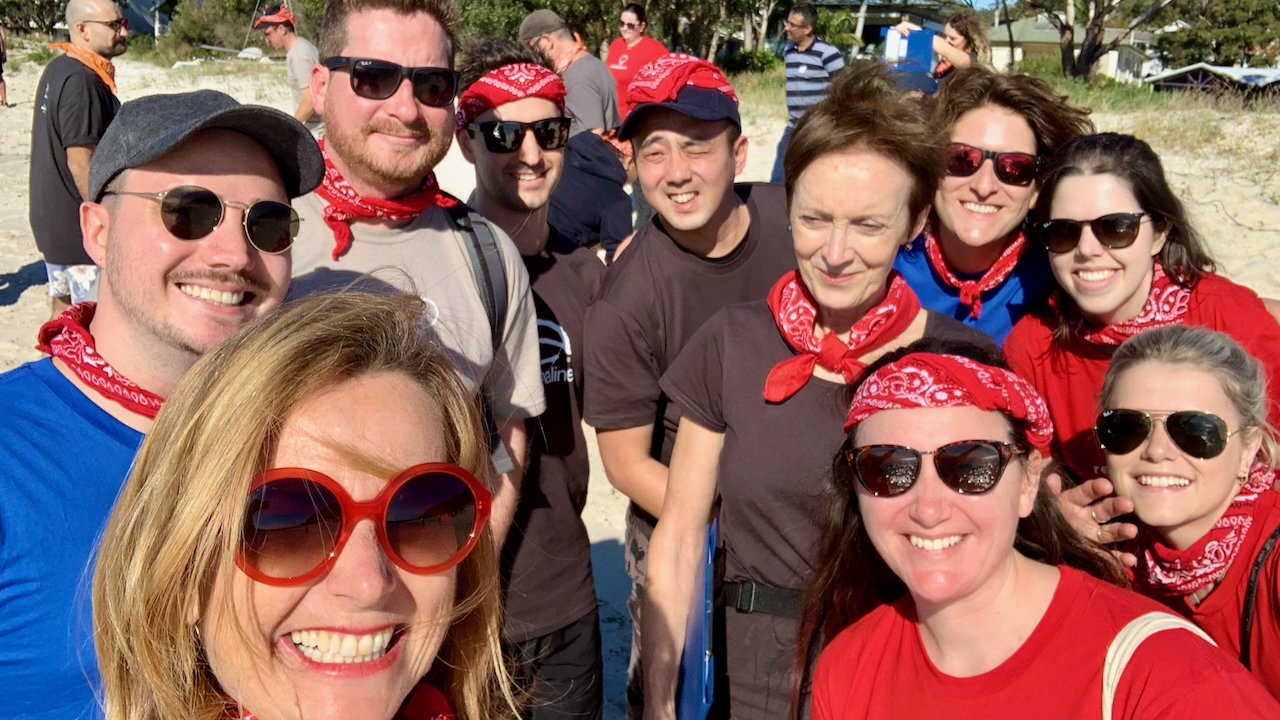There’s a moment in the life of every successful founder that is a strange and potent cocktail of pure elation and sheer terror. It’s the moment you look up from the daily grind and realise, "Oh my gosh, it's working." The product has found its market. The customers are coming. The revenue is climbing. The dream is no longer just a dream; it's a living, breathing, and rapidly growing reality.
And then, a second, more terrifying thought immediately follows: "Oh my gosh, it's working too well."
The systems you built on the back of a napkin are starting to creak and groan. Your team, once a tight-knit family, is showing signs of strain. You, the founder, who used to know every customer by name, now feel like you're running on a treadmill that is accelerating uncontrollably, and you're just one misstep away from being flung into the wall.
This is the scaling paradox. It is the critical, company-defining moment where the very things that made you successful—your scrappy resourcefulness, your hands-on control, your sheer force of will—become the very things that will hold you back.
I have lived this paradox. I have felt the exhilarating G-force of RedBalloon's growth and the gut-wrenching moments when our systems broke under the strain. I have sat in the Shark Tank and watched founders with fast-growing businesses who were on the verge of collapsing under the weight of their own success. And I have learned that scaling a business is not about doing more of the same. It is about undergoing a fundamental, and often deeply uncomfortable, transformation.
It is a journey of letting go, of building systems, and of evolving as a leader. It is the journey from being a founder to being a CEO. Today, I want to give you my definitive, from-the-trenches guide on how to navigate this journey. This isn't theory from a business school textbook. These are the real, hard-won lessons on how to scale a business without it breaking you, your team, or your spirit. It is a journey of four great evolutions.
.jpeg)
Evolution 1: The Founder - From Chief Doer to Chief Architect
The first, most important, and most painful evolution begins with the person you see in the mirror every morning. In the beginning, you are the business. You are the head of sales, the chief marketer, the lead product developer, and the customer service department. Your value is in what you do.
But a business cannot grow beyond the personal capacity of one human being. The moment your business starts to scale, you, the founder, immediately become its biggest bottleneck. Every decision that has to cross your desk, every task that only you can do, is a handbrake on your company's growth.
The first great evolution of scale is the journey from being the Chief Doer to being the Chief Architect. Your job is no longer to lay the bricks, but to design the cathedral. This requires a profound shift in both mindset and action.
- You Must Master the Art of Letting Go: This is the hardest part. You must delegate. But true delegation is not just handing off tasks; it is handing over outcomes. You must give your team a clear goal, the resources to achieve it, and the autonomy to find their own way. It requires you to accept that their way may not be your way, and that a task done to 80% of your "perfect" standard by someone else is infinitely better than a task done to 100% by you, because it frees you to work on the things that truly matter.
- You Must Manage Your Energy, Not Just Your Time: As the business scales, the demands on your time become infinite. You can no longer just "work harder." You must work smarter. This means managing your personal energy with the discipline of an elite athlete. As I've explored before, understanding your peak energy windows and dedicating them to your highest-value work—strategy, innovation, key relationships—is a critical discipline. A founder's energy is the company's energy; if you are drained, the business will be too.
- You Must Move from Gut to Data: In the early days, you can run the business on gut feel. You know your customers, you know your product. But as you scale, you cannot be in every conversation. You must build a dashboard. You must learn to trust data as much as you trust your intuition. You need to know your key metrics—your Customer Acquisition Cost (CAC), your Lifetime Value (LTV), your churn rate—and use them to make objective, strategic decisions.
I remember seeing so many founders in the Shark Tank who were still packing the boxes themselves or personally answering every customer service email. It was an immediate red flag. It showed me they hadn't yet made this crucial mental leap. They were still working in their business, and a business where the founder is still doing everything is a business that can never truly scale.
Evolution 2: The Team - From a Loyal Family to a High-Performing Team
The second evolution flows directly from the first. As you evolve as a leader, your team must evolve with you. The "scrappy family" culture that works so beautifully when you are a team of five people in a single room begins to break down at twenty, and shatters at fifty.
The informal communication, the blurred roles, the "all hands on deck" mentality that was your superpower in the beginning becomes a source of chaos, confusion, and frustration as you scale. The journey here is from a loyal family to a high-performing team. This doesn't mean losing the connection or the care; it means adding a layer of professional structure and clarity on top of it.
- You Must Hire for the Future, Not Just for Today: Your first hires are often passionate generalists who are willing to do anything. To scale, you need to start hiring specialists for the company you want to be in 18 months' time. This means creating clear job descriptions, having a structured interview process, and hiring people who have skills and experience that you do not. The goal is to hire people who are smarter than you at their specific function.
- You Must Create Clarity and Accountability: This is where the "boring" stuff becomes essential. You need a clear organisational chart so everyone knows who they report to. You need specific KPIs for every single role so everyone knows what "winning" looks like. You need regular, structured check-ins and performance conversations. This structure doesn't stifle creativity; it creates the psychological safety and clarity that allows people to do their best work.
- You Must Intentionally Build Your Culture: At RedBalloon, we were obsessive about our culture. It was the foundation of everything. As you scale, you cannot leave your culture to chance. You must define your core values in clear, behavioural terms. You must hire for those values, fire for them, and, most importantly, create systems for employee recognition that celebrate those values in action every single day. As I've always said, a great culture is not about ping-pong tables; it's about a shared sense of purpose and a clear set of behaviours. This is a topic I feel so strongly about, as I explored in my conversation on what makes a business owner successful.
A family's primary purpose is unconditional belonging. A high-performing team's primary purpose is to win, together. You can, and must, have a team that is both deeply supportive and fiercely committed to a high standard of performance.
.jpeg)
Evolution 3: The Engine Room - From Manual Hustle to Scalable Systems
The third evolution happens in the engine room of your business. In the early days, your business runs on heroic effort. It's held together by the sheer hustle of you and your early team members. Knowledge lives in people's heads, processes are inconsistent, and every new client feels like a custom, one-off project. This is completely unsustainable.
To scale, you must move from manual hustle to scalable systems. Your goal is to build a business that can run and grow without constant heroic intervention. It is about building a well-oiled machine.
- You Must Obey the Mantra: "Document Everything": Every single core process in your business—how you generate a lead, how you onboard a new client, how you handle a customer complaint, how you hire a new employee—must be documented. These Standard Operating Procedures (SOPs) are the operating manual for your business. They are what allow you to train new team members quickly and ensure a consistent, high-quality customer experience, every single time.
- You Must Leverage the Right Technology: Technology is the great accelerator of scale. But you must be strategic. Don't get seduced by the latest expensive, all-in-one software. Start with the basics. You need a solid Customer Relationship Management (CRM) system to manage your customer data, a good project management tool to create clarity on who is doing what, and a robust accounting system to manage your finances. Choose simple, flexible tools that can grow with you.
- You Must Build a Scalable Sales and Marketing Funnel: You can no longer rely on your personal network and random acts of marketing. You must build a predictable, measurable system for attracting and converting customers. This means understanding your marketing funnel, tracking your conversion rates at each stage, and investing in the channels that give you a predictable return. This is the shift from being a "hunter" who has to find a new meal every day, to being a "farmer" who builds a system that yields a predictable harvest.
I will never forget the pain we felt at RedBalloon during one of our first very busy Christmas periods. Our manual, home-grown systems completely broke under the load of the sales volume. It was a nightmare of lost orders and unhappy customers. But it was also a priceless lesson. It forced us to stop and invest in building the robust, scalable systems that would allow us to handle ten times that volume in the future.
Evolution 4: The Customer - From Any Customer to the Right Customer
The final evolution is a crucial strategic shift in how you view your market. In the beginning, you are grateful for any customer who is willing to give you money. You will bend over backwards to accommodate any request. You chase every dollar.
As you scale, this "say yes to everyone" approach becomes a massive liability. It leads to operational complexity, a diluted brand, and a portfolio of unprofitable, high-maintenance customers who drain your team's energy and morale.
The journey here is from serving any customer to obsessively serving the right customer.
- You Must Define Your Ideal Customer Profile (ICP): You need to get crystal clear on who your best customers are. They are not just the ones who spend the most; they are the ones who value your unique strengths, are a pleasure to work with, and who become your greatest advocates.
- You Must Have the Courage to "Fire" Your Worst Customers: This is a terrifying but transformative idea. The classic 80/20 rule often applies: 80% of your headaches, complaints, and unprofitable work will come from 20% of your customers. Firing these "bad fit" customers is an act of addition by subtraction. It frees up your team's time and energy to provide an even more incredible experience for your best customers.
- You Must Build a Scalable Feedback Loop: How are you systematically gathering, analysing, and acting on customer feedback? Tools like the Net Promoter Score (NPS) are not just a metric to be tracked; they are a system for continuous improvement. As you scale, this formal feedback loop becomes your ears on the ground, ensuring you never lose touch with what your customers truly want. As I often ask founders on my podcast, do you really want more customers if you're not ready to serve them brilliantly?
.jpeg)
Scaling is a Journey of Transformation, Not Just Addition
Scaling a business is one of the most exciting and challenging undertakings in the world. It is a journey that will test you in ways you cannot yet imagine.
But it is not just a process of addition—of adding more customers, more people, and more revenue. It is, at its core, a process of transformation.
It is the transformation of the founder, from a doer to a leader.
It is the transformation of the team, from a family to a high-performing unit.
It is the transformation of the operations, from manual hustle to scalable systems.
And it is the transformation of the customer base, from anyone to the right ones.
Navigate these four great evolutions with intention, with courage, and with a deep commitment to learning, and you will not just build a bigger business. You will build a better, stronger, and more sustainable one, with you, the founder, calmly at the helm, not desperately clinging to the back.
What is the single biggest scaling challenge you are facing in your business right now? Which of these four evolutions feels most urgent for you?
Frequently Asked Questions (FAQs) on How to Scale a Business
What does it truly mean to scale a business?
Scaling a business is fundamentally different from just growing it. Growth means adding resources (like capital and people) at the same rate you're adding revenue. Scaling, however, is the ability to increase your revenue at an exponential rate while only making an incremental increase in your operational costs and resources.
What is the most critical first step to scaling successfully?
The most critical first step is to ensure you have a proven and repeatable business model. Before you can scale, you must have a solid foundation: a clear product-market fit, a profitable customer acquisition strategy, and efficient, well-documented processes. You cannot scale a broken or inefficient system.
What role does technology play in scaling a business?
Technology is the engine of scalability. It allows you to automate repetitive tasks, streamline workflows, and serve a larger customer base without a linear increase in headcount. From customer relationship management (CRM) systems to marketing automation, leveraging the right tech stack is essential for achieving efficient, sustainable scale.
How important is company culture when you start to scale?
Company culture becomes exponentially more important as you scale. As a company grows, founders can no longer be involved in every decision. A strong, intentionally cultivated culture acts as a guiding principle, empowering your team to make consistent, values-aligned decisions autonomously and ensuring the business's DNA remains intact.
What is one of the biggest mistakes founders make when trying to scale?
One of the biggest and most common mistakes is trying to scale prematurely. Pouring capital into scaling a business before the model is proven and the processes are solid simply amplifies existing problems. This "grow-at-all-costs" approach often leads to burning through cash, operational chaos, and ultimately, business failure.


.jpeg)


